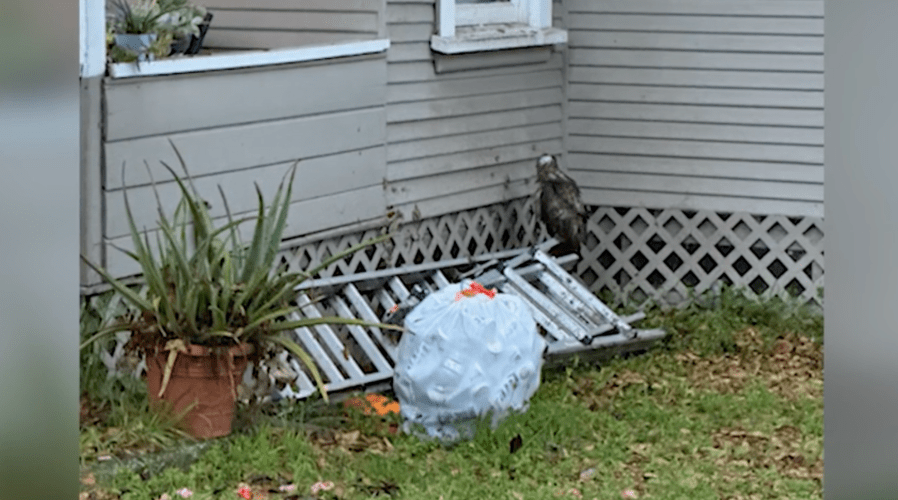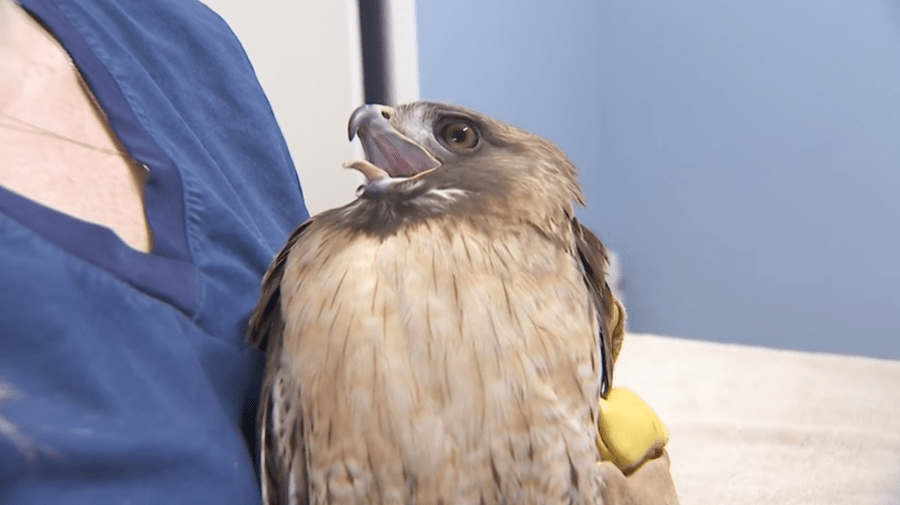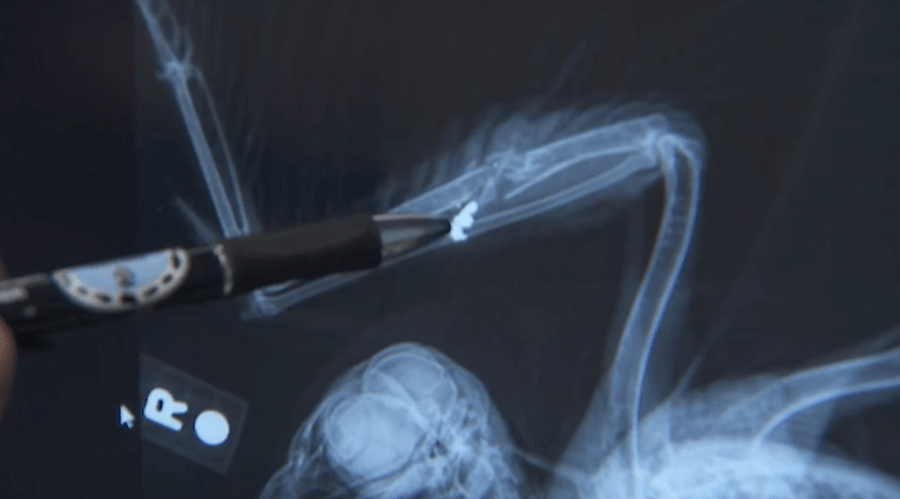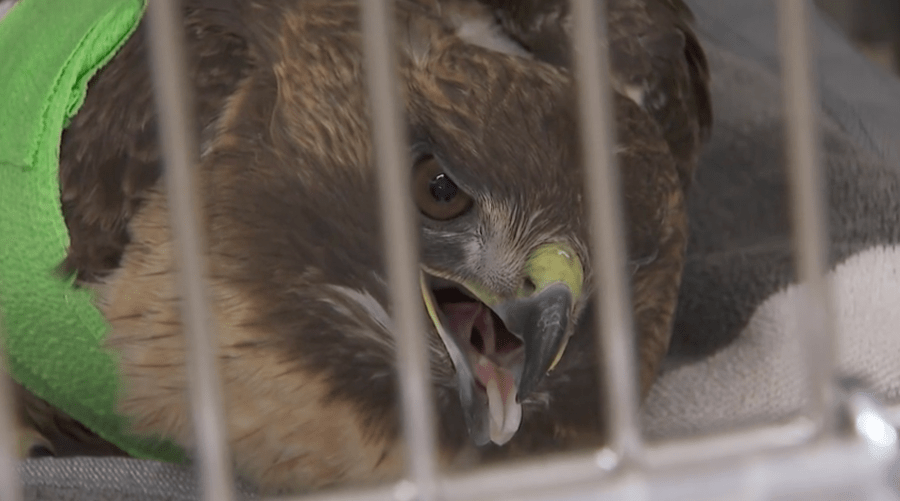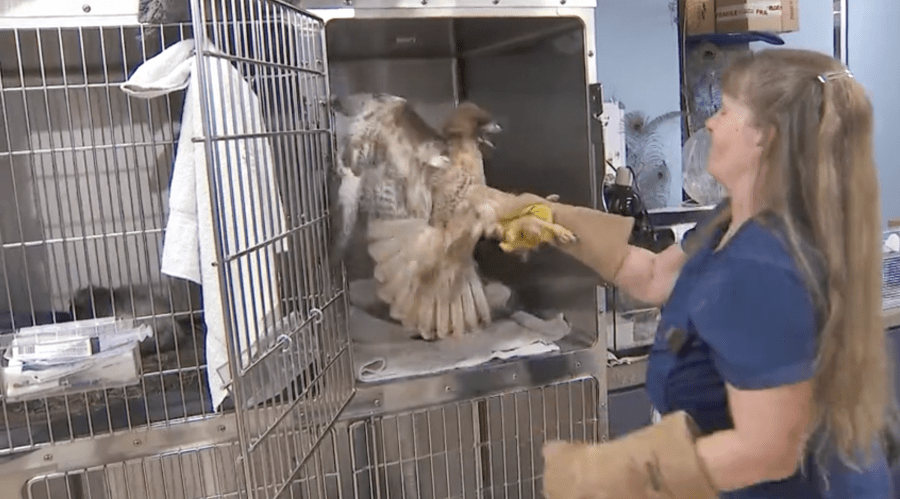A red-tailed hawk wounded by pellet-gun fire that was found stressed, suffering and unable to fly in a Pasadena resident’s backyard is getting a second chance thanks to some dedicated Southern California wildlife advocates.
The concerned homeowner, who lives on Elizabeth Street, immediately reached out to the humane society, but they were closed. Their next call was to Cleo Watts.
“He was bleeding from his right wing,” Watts said of the wounded hawk.
As a satellite wildlife rehabilitator, Watts works with sick or injured wildlife out of her home to ensure the animals receive proper care before being released back into the wild.
Since raptors are not her specialty, she contacted the Exotic Animal Veterinary Center in Pasadena.
“[She] said, ‘I got this hawk in somebody’s backyard, who is down and can’t fly and it’s pouring rain,’” Veterinarian Kim Bachar told KTLA’s Jennifer McGraw. “So, I said, ‘Okay, bring it in.’”
What Bachar found were two pellet-gun injuries, one that healed over and a fresh wound in the red-tailed hawk’s wing, evidence that the protected bird had been preyed upon by humans.
“Unfortunately, it happens all the time,” the exotic animal veterinarian told KTLA. “It’s frustrating because people use them for target practice.”
Rescuers are often reluctant to take in birds of prey like eagles, falcons, hawks and owls because by law they only have 48 hours to get the raptors to a federally licensed facility.
To complicate matters, there are not many federally licensed facilities nearby.
“We are shorthanded out here,” Watts explained. “There’s not many of us and we need more resources.”
Thanks to the volunteers’ quick work, the hawk has been treated locally and will undergo surgery and rehabilitation at the Ojai Raptor Center, about a two-hour drive away.
“They’re living creatures,” Watts said. “They deserve respect and love and compassion.”
Both Watts and Bachar are hoping that more people will step up in cases like this and that more facilities will get licensed to handle raptors.
